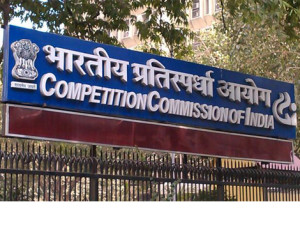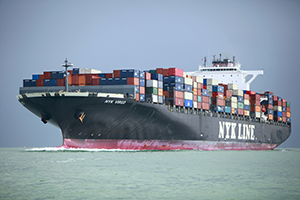
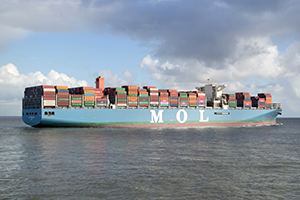
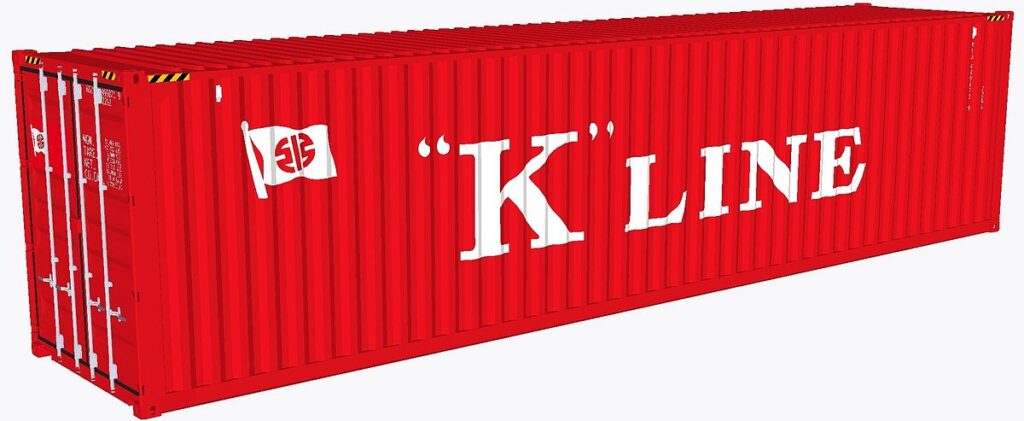
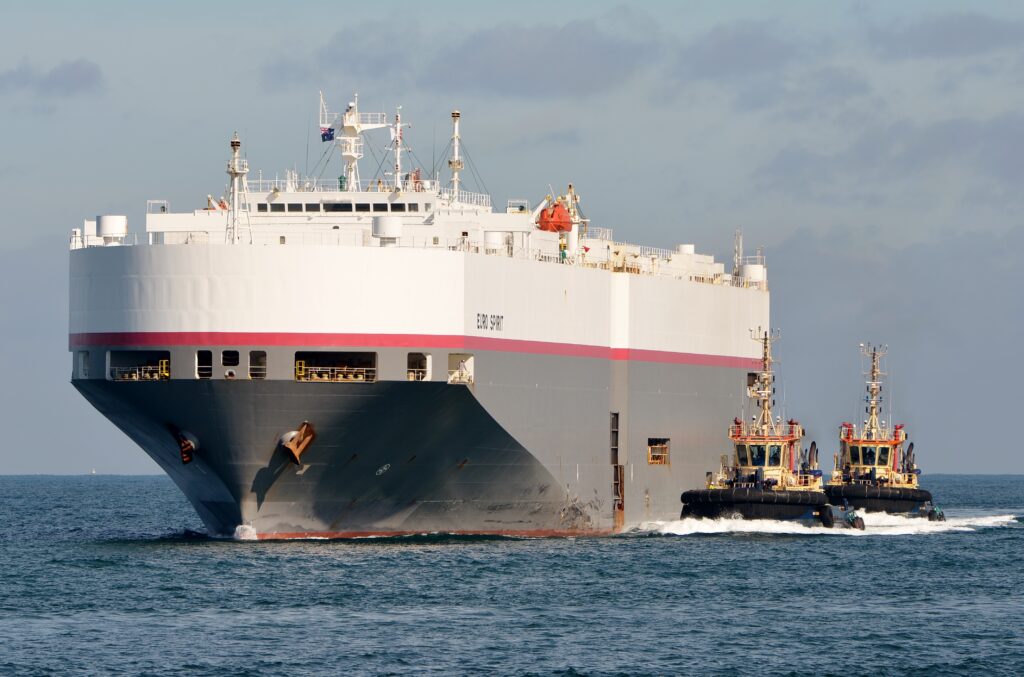
CCI vide its order dated 20.01.2022 found Nippon Yusen Kabushiki Kaisha (‘NYK Line’/‘OP-1’), Kawasaki Kisen Kaisha Ltd. (‘KLine’/‘OP-2’), Mitsui O.S.K. Lines Ltd. (‘MOL’/‘OP-3’) and Nissan Motor Car Carrier Company (‘NMCC’/‘OP-4’), guilty of cartelization in the provision of maritime motor vehicle transport services to automobile Original Equipment Manufacturers (‘OEMs’) for various overseas trade routes. In the public version of the order, the names of the OEMs have been redacted.
BACKGROUNG
The CCI initiated suo motu case, based on an application dated 01.10.2014 filed under the provisions of Section 46 of the Competition Act, 2002 (the ‘Act’) read with Regulation 5(1) of the Competition Commission of India (Lesser Penalty) Regulations, 2009 (‘Lesser Penalty Regulations’), by NYK Line. It was mentioned in the application that NYK Line, K-Line, MOL and NMCC (hereinafter the ‘OPs’) colluded in respect of providing maritime motor vehicle transport services to automobile OEMs viz. for certain specific overseas trade routes. Commission noted that the OPs were exchanging commercially sensitive information to co-ordinate, inter alia, the price to be quoted for provision of maritime motor vehicle transport services on Pure Car Carrier (‘PCC’) vessels to automobile OEMs. Based on the same, the Commission, forming an opinion that a prima facie case of contravention of the provisions of Section 3(3)(a) and Section 3(3)(d) read with Section 3(1) of the Act is made out, passed an order dated 20.11.2014 under Section 26(1) of the Act directing the Director General (‘DG’) to cause an investigation to be made into the matter and submit a report.
During the pendency of investigation before the DG, MOL and NMCC also approached the Commission on 29.07.2016 as lesser penalty applicants, by filing a joint application under the provisions of Section 46 of the Act read with Regulation 5(1) of the Lesser Penalty Regulations. The Commission, however, vide order dated 03.08.2016, rejected the said application dated 29.07.2016 on the ground that two competing companies have filed a joint application. Thereafter, MOL, followed by NMCC, filed separate applications before the Commission on 04.08.2016, under Section 46 of the Act read with Regulation 5(1) of the Lesser Penalty Regulations.
Allegations
- NYK Line and K-Line exchanged information with respect to quoted freight rates/positions/schedules, etc. In the bid-rigging process, MOL was also complicit.
- NYK Line and K-Line, inter alia, coordinated the sailing schedule to control the frequency of shipments per month, in response to the requests made by.
- Meetings took place between NYK Line and NMCC in this regard, wherein NMCC requested NYK Line to submit a bid at a price higher than NMCC’s indicated rates. Further, for a specific trade route (redacted) , NMCC requested NYK Line to provide a provisional freight rate.
- The Commission noted that the OPs were exchanging commercially sensitive information to co-ordinate, inter alia, the price to be quoted in the matter of provision of maritime motor vehicle transport services on Pure Car Carrier (‘PCC’) vessels to automobile OEMs.
The Commission, found that a prima facie case of contravention of the provisions of Section 3(3)(a) and Section 3(3)(d) read with Section 3(1) of the Act is made out and directed a detailed investigation by the Director General (DG) .
DG Investigation
The DG noted that the ocean shipping industry comprises of multiple sectors and types of vessels, including bulk carriers, tankers, and vehicle carriers. In addition to shipping vehicles, vehicle carriers also ship high and heavy cargo (cargo bigger and heavier than a vehicle and requiring special arrangements) and small, ancillary, non-moveable cargo, etc. A RoRo ship is a special type of ocean vessel that allows cars to be driven and parked on its decks for long voyages. These ships, also known as Car Carriers, have special ramps to permit easy access, high sides to protect the cargo during transport, and numerous decks to allow storage of a large number and variety of cars. With the aforesaid industry overview, the DG returned to the following findings:
- Line, K-Line and MOL colluded with each other. The modus operandi for this collusion was found to be centered on initial negotiations between these three OPs. It was found that NYK Line and K-Line agreed to offer joint services to and that NYK Line and K-Line also agreed to follow ‘Respect Rule’ with MOL. Further, freight rates were also discussed between these three Ops.
- NYK and K-Line colluded by having meetings and exchanging calls for the route of from 2008 to 2012. There was also close matching of freight prices for the contracts.
- The DG found that the four OPs had agreements/arrangements/tacit understanding with each other from 2008 onwards till at least 2012, utilizing various modus operandi and thereby forming respective cartels which had the effect of limiting competition in India.
- The entire set of evidence which are in the form of memos, e-mails, Affidavits, and depositions, established that all the four OPs were in regular interaction with each other and formulated strategies with respect to contract, which is in contravention of the provisions of Section 3(3)(a), 3(3)(c) and 3(3)(d) read with Section 3(1) of the Act.
- Various officials of the OPs under Section 48(1) and/or Section 48(2) of the Act, who had been part of the cartelization amongst the OPs. The role of these individuals was duly noted.
Reply of OP’s
- NYK Line provided full, true and vital disclosures, information, documents and evidence and co-operated genuinely, fully, continuously and expeditiously throughout the investigation and not concealed any information.
- NYK Line, prayed that in the event the Commission deems it appropriate to levy a penalty on NYK Line, it should be granted 100% reduction in penalty in terms of Section 46 of the Act read with Regulation 4 of the Lesser Penalty Regulations.
- MOL has extensively explained the cartel and has made immense value addition. MOL has also submitted a lot of evidence which has not been relied upon by the DG in the DG Report. MOL has met the standard under Regulation 3(1) of the Lesser Penalty Regulations read with Section 46 of the Act and should be granted maximum reduction in penalty.
- The ‘Respect Rule’ was at the heart of the cartel activities that took place between the car carrier shipping companies and is also a key focus of MOL’s lesser penalty application and additional submissions.
- MOL’s response should also entitle NMCC, its subsidiary, to all benefits that MOL may get in terms of immunity or reduction in fines in consonance with MOL’s priority status.
- NMCC made immense value addition by way of its submissions and extensively assisted the DG in arriving at its conclusions.
CCI Findings
Exchange of Information: The Commission, was of the view that even assuming that the discussion between the OPs with respect to freight served as a reference, it is beyond comprehension as to what was the need to discuss even reference levels between competitors. Such discussions could have been between the procurer i.e., and the concerned OP and not between the OPs themselves. Further, it was also of no consequence that subsequently negotiated rates had brought down the freight rates for the route, even below the supposed Guideline Rates. Once the OPs have distorted the price discovery process by colluding with each other, any effort by the procurer to further negotiate the price is not likely to achieve the same competitive freight rates that would have been discovered under competitive conditions. The communication between the OPs are indicative of the fact, that instead of independently competing to provide services to, decided to offer joint services in relation to the tender for maritime motor vehicle transport for its trade route from to in. By virtue of this arrangement, they secured business. Mere absence of a formal tender would not grant immunity to the negotiating suppliers from the provisions of Section 3(3)(d) of the Act if they have otherwise colluded. The essence of the provision is to ensure competitive offerings. This may be attained by floating a formal tender or by engaging in negotiations with prospective suppliers.
Respect Rule: The Commission noted that the very basis of the cartel allegations in the matter pertains to enforcement of ‘Respect Rule’ by the PCCs in favour of the incumbent player (which in case of , was NMCC). Therefore, the outcome of the said rule would obviously be that K-Line did not provide services. K-Line has not asserted that it was not approached by seeking maritime transport services for its vehicles manufactured in India. Accordingly, the said assertion by K-Line was of no consequence. As elaborated earlier, there is sufficient evidence on record (via emails, WhatsApp messages) to indicate that other PCC(s) approached KLine to either respect the incumbent status or quote a higher price.
AAEC:
CCI further held that Exchange of information and discussions in the present matter were not restricted to operational issues. The PCCs actively exchanged/discussed, inter alia, price-related information as well as requested each other to enforce the ‘Respect Rule’. By no stretch of imagination can discussion on such issues be assumed to be restricted to operational issues. The Notification No. S.O. 354(E) dated 05.02.2015 issued by the Ministry of Corporate Affairs while exempting Vessel Sharing Arrangements (VSAs) between Liner Shipping Industry from the provisions of the Act, does not exempt them from provisions of Section 3 of the Act and has itself carved out an exclusion for agreements resulting in concerted practices involving fixing of prices, limitation of capacity or sales and allocation of markets or customers.
CCI further held that the evaluation of available evidence indicates that there was an agreement between NYK Line, K-Line, MOL and NMCC with the objective of enforcement of “Respect Rule”, which implies avoiding competition with each other and protecting the business of incumbent Pure Car Carrier (PCC) vessels with the respective OEM. The PCCs would respect the business of the incumbent carrier by either providing a quote above the incumbent’s rates or refraining from quoting. To achieve the said objective, the OPs resorted to multi-lateral as well as bilateral contacts/ meetings/ e-mails with each other to share commercially sensitive information which, inter alia, includes freight rate. The OPs engaged in such practices with the aim of restricting competition and maintaining the status quo, i.e., ensuring that the car carriers would keep their respective businesses for certain customers and/or certain routes. The said conduct on the part of the OPs can be classified as an agreement which is presumed to have AAEC within India under the provisions of Section 3(3) of the Act. It is noted that NYK Line, MOL and NMCC have not objected to such AAEC.
CCI based on the above concluded that NYK-LINE, K-LINE, MOL, NMCC including their office bearers (‘Opposite Parties’ or OP) are guilty of cartelization through exchange of commercially sensitive information to co-ordinate, inter alia, the price quoted in the matter of provision of maritime motor vehicle transport services on PCC vessels to automobile OEMs under Section 3 of the Act.
Penalty
The Commission decided to impose penalty @ 5% of the relevant turnover for each year of continuance of cartel on all the OPs:
- OP – 1 NYK Line INR 38,10,52,508
- OP-2 K-Line INR 24,23,22,075
- OP – 3 MOL INR 20,25,94,486
- OP-4 NMCC INR 40,99,20,191
The Commission also imposed a penalty on the individuals, at the same rate of 5% of the average of their incomes, for the last three financial years preceding the date when the agreement between Opposite Parties ceased to exist.
Lesser Penalty
NYK Line was the first lesser penalty applicant to approach the Commission. As such, it was held eligible for up to 100% reduction in the penalty amount imposed upon it. The leniency application filed by NYK Line disclosed the collusive actions with its competitors along with documents of evidence in support. With full disclosure of information, in relation to exchange of commercially sensitive information, freight charges, restricting supply subsequently led to the CCI to order an investigation in the matter. CCI also granted 100 percent immunity to NYK Line and its individuals for disclosing the existence of cartel in the maritime motor vehicle market. Subsequently, MOL and NMCC filed lesser penalty applications with detailed submissions as to why they should be traded jointly and not as separate entities. Both were granted the second and third priority status maker respectively. MOL and its individuals were granted up to 50% reduction from penalty, being the second leniency applicant, was fined INR 10,12,97,243 and lastly, NMCC and its individuals, were granted up to 30% reduction from penalty, being the third leniency applicant, and was fined INR 28,69,44,134.
COMMENT: This is a typical case of competitors exchanging sensitive information to coordinate in the rates for providing services. Though all the four shipping lines had conceded that they were coordinating with each other and were thus cartel yet their meek defense of the coordination that subsequently negotiated rates had brought down the freight rates for the route, even below the supposed Guideline Rates not leading to actual increase in sea fares was rightly rejected by the Commission. The Act proscribes even attempts of coordination amongst competitors , particularly , relating to price fixation even though such attempts may not be successful or the procurer may bring down such rates by its own due diligence .






